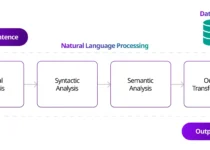Benefits of Data-Driven Marketing for Marketers
In today’s digital age, data has become the cornerstone of successful marketing strategies. Marketers are increasingly leveraging data-driven approaches to gain valuable insights into consumer behavior, preferences, and trends. This shift towards data-driven marketing has revolutionized how businesses engage with their audience and drive growth. Here are some key benefits that data-driven marketing offers to marketers:
- Enhanced Targeting and Personalization
Data-driven marketing allows marketers to create highly targeted campaigns based on detailed customer profiles and behavior patterns. By analyzing data such as demographics, purchase history, and online interactions, marketers can tailor their messages to resonate with specific segments of their audience. This level of personalization not only improves engagement but also enhances the overall customer experience, leading to higher conversion rates and customer loyalty.
2. Improved Decision-Making
Data-driven marketing provides marketers with actionable insights that guide strategic decision-making. By analyzing real-time data metrics such as website traffic, conversion rates, and campaign performance, marketers can quickly identify what strategies are working and where adjustments are needed. This agility allows for more efficient allocation of resources and budget, ensuring maximum return on investment (ROI) for marketing efforts.
3. Better Understanding of Customer Journey
Understanding the customer journey is crucial for optimizing marketing strategies. Data-driven marketing enables marketers to map out the entire customer journey, from initial awareness to post-purchase interactions. By tracking customer touchpoints and analyzing behavioral data, marketers can identify pain points, optimize conversion funnels, and deliver relevant content at each stage of the buying process.
4. Real-Time Campaign Optimization
One of the most significant advantages of data-driven marketing is the ability to optimize campaigns in real time. By continuously monitoring key performance indicators (KPIs) and leveraging A/B testing, marketers can make data-backed adjustments to campaigns on the fly. This proactive approach allows marketers to capitalize on emerging trends, respond to market changes, and maximize campaign effectiveness.
5. Cost Efficiency and ROI Maximization
Data-driven marketing helps marketers achieve greater cost efficiency by focusing resources on strategies that deliver the highest ROI. By identifying the most profitable customer segments and channels, marketers can allocate their budget more effectively. Additionally, the ability to measure the impact of each marketing initiative allows for continuous improvement and optimization, ensuring long-term profitability and growth.
Conclusion
In conclusion, data-driven marketing empowers marketers to make informed decisions, personalize customer experiences, and optimize campaign performance. By harnessing the power of data analytics, marketers can stay ahead of the competition, drive business growth, and build lasting relationships with their audience. Embracing a data-driven approach is not just a trend but a fundamental shift that can significantly impact the success of marketing efforts in today’s digital landscape.
As the marketing landscape continues to evolve, embracing data-driven strategies will be essential for marketers looking to thrive in a competitive environment and deliver meaningful results for their organizations.


